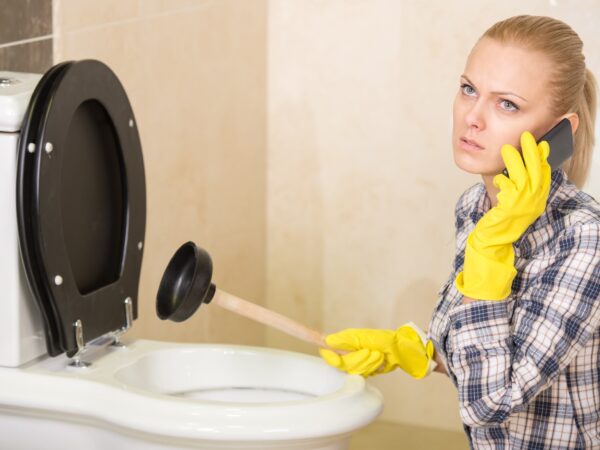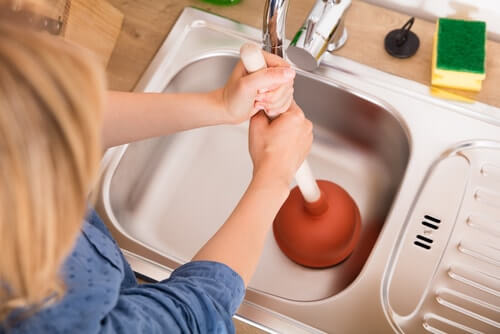Are you currently on the lookout for advice on What to Do During a Plumbing Emergency?

Plumbing emergencies can strike any time, triggering tension and possible damage to your home. Whether it's a burst pipeline, a stopped up drain, or a dripping faucet, knowing just how to manage the scenario until a specialist plumber gets here can save you from further complications. This write-up gives necessary emergency pipes suggestions to assist you reduce damages and gain back control during a plumbing situation.
Shut off the Supply Of Water
The first step in any kind of plumbing emergency is to shut off the water. For local issues, such as a dripping tap or toilet, switch off the shutoff near the fixture. When it comes to a major leak or ruptured pipe, situate your home's main water shut-off shutoff and turn it off promptly. Knowing the place of these shutoffs in advance can conserve beneficial time during an emergency situation.
Address Small Leaks with Short-lived Fixes
Small leakages can quickly end up being substantial issues if left unattended. Make use of these temporary repairs till expert aid arrives:
While these repairs aren't long-term, they can aid minimize water loss and damage.
Unclog Drains Pipes Securely
A stopped up drainpipe can be a frustrating and messy problem. Below's just how to tackle it:
If these techniques do not function, stay clear of making use of too much pressure, as it might get worse the blockage.
Manage Overflowing Toilets
An overruning toilet can cause instant turmoil. Below's what you should do:
Shut Off Your Water Heater
In certain emergencies, such as a burst pipe, it's a good idea to shut off your water heater. This avoids overheating or damage to the unit when water stops flowing. Turn off the power supply to the water heater (electrical or gas) and allow it cool to stay clear of possible risks.
Momentarily Quit a Ruptured Pipeline
A burst pipe can lead to significant water damage in mins. To minimize the concern:
Call a professional plumber quickly to deal with the issue permanently.
Handle Frozen Water Lines Thoroughly
In cooler climates, frozen pipelines are a typical emergency. If you presume a frozen pipe:
Prevent More Damage
Taking fast activity to reduce damages can save you money and time in the long run. Below's exactly how:
. Have an Emergency Situation Pipes Package
Prepare a basic plumbing emergency situation kit to deal with small concerns efficiently. Your set needs to include:
Having these devices on hand can make a considerable distinction in your capacity to take care of emergencies.
Know When to Call an Expert.
While quick fixes can aid momentarily, certain plumbing problems call for prompt professional attention. Call a plumbing technician if:.
Without delay speaking to a professional ensures the issue is dealt with properly and stops additional issues.
Verdict.
Pipes emergency situations can be frustrating, however with the best understanding and tools, you can handle the circumstance efficiently up until assistance arrives. By turning off the supply of water, dealing with small leakages, and using short-term repairs, you can lessen damages and maintain your home safe. Keep in mind, these ideas are momentary options; constantly get in touch with a certified plumbing to handle the root cause of the trouble. Prep work and quick reasoning are your ideal allies in any type of plumbing emergency.
8 Helpful Tips for Managing Plumbing Emergencies at Home
If your plumbing system hasn’t failed once, wait for it because almost everyone has a story to tell. Sometimes, it could be simple emergencies such as a leaking pipe, a blocked cistern, or even a big burst pipe. In situations like this, you need to have some handy tips to save you some money and from possible damages.
Take care of minor issues early.
Sometimes, you could have avoided an emergency by taking proactive measures while it was still early. Some major plumbing emergencies can be a result of an ignored minor issue. We recommend that you have items like plumbing tapes and other related items. A plumbing tape can allow you to manage minor leaks before the plumber arrives.
Cut off the water supply.
This tip is essential in almost any type of leakage problem. For problems like minor leakages in the toilet or kitchen, turn off the supply that takes water to the affected pipes. If the leakage is a major pipe, you must shut off the supply valve to the entire building. This will help you avoid flooding your home and neighbors if you share a flat.
Know your plumbing system
Folks typically move into a new apartment without understanding the water supply around the building. This can prove disastrous if a water emergency arises and the plumber is far away. The previous tip will prove useless if you don’t practice this one. More importantly, know where your water shut-off valve is located – you’ll need that knowledge to prevent potential home floods.
Have some common handy tools
There are lots of plumbing emergencies that you can handle without hiring a plumber. That’s why you must keep some tools available always. Some tools that you can use to fix simple plumbing emergencies easily include plumbing tapes, screwdrivers, thread seal tapes, plungers, pliers, tape measures, and rubber gloves.
Insulate your pipes from cold
You’ll save yourself from many plumbing expenses if you protect your water pipes from the cold. This is because of the harmful effects that cold weather can have on your pipes. During winter, your pipes can burst from being overly expected to freezing temperatures. So, make sure insulators are there to keep the pipes working correctly.
Avoid practices that will clog your toilet.
Many people indulge in practices that can damage the plumbing system of the entire building. One of these is when they use their toilet to dispose-off garbage. They flush all kinds of things, such as paper towels, bandages, hairs, female sanitary products, etc., down the toilet. This will block your toilet in the long run, incurring unnecessary expenditures. Dump such waste in the trash instead.
Check your dials regularly.
Sometimes, there could be leakages in your home without noticing them in time. So, constantly monitor your water meter dial. If the dial is reading when there is nobody using water, this is an indicator that there is leaking. Check for leaks immediately. Call a plumber as soon as possible if you can’t find any.
https://www.constructionplacements.com/8-helpful-tips-for-managing-plumbing-emergencies-at-home/

I discovered that review on Expert Tips for Managing a Plumbing Emergency Until Help Arrives when doing a search on the internet. If you liked our blog post if you please consider to pass it around. We truly appreciate reading our article about Expert Tips for Emergency Plumbing Repairs.
Book A Service